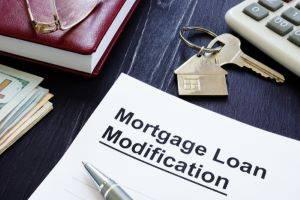When Are Mortgage Loan Modifications an Alternative to Bankruptcy?
 Homeowners may experience a variety of financial difficulties that cause them to be unable to meet their financial obligations, and if they default on their mortgage, they may face the foreclosure of their home. During the COVID-19 crisis, this has become a major concern, since factors such as job losses or increased expenses due to illness have affected many homeowners’ ability to make mortgage payments. Those who are facing a potential foreclosure or struggling to pay off debts may consider bankruptcy, but for those who are not ready to take this drastic step, other alternatives may be available, including requesting loan modifications from a mortgage lender.
Homeowners may experience a variety of financial difficulties that cause them to be unable to meet their financial obligations, and if they default on their mortgage, they may face the foreclosure of their home. During the COVID-19 crisis, this has become a major concern, since factors such as job losses or increased expenses due to illness have affected many homeowners’ ability to make mortgage payments. Those who are facing a potential foreclosure or struggling to pay off debts may consider bankruptcy, but for those who are not ready to take this drastic step, other alternatives may be available, including requesting loan modifications from a mortgage lender.
Types of Loan Modifications
To provide relief for those who have been affected by the COVID-19 pandemic, the federal government and many state governments have placed a moratorium on foreclosures. Borrowers who are experiencing financial hardship and who have a mortgage insured by the Federal Housing Administration (FHA) can receive a six-month forbearance of their mortgage payments, as well as an additional six-month extension if needed. A forbearance will allow a homeowner to defer their mortgage payments, although they will be required to make up any deferred payments once the period of forbearance has ended.
Even after receiving a forbearance, some homeowners may find that they will be unable to afford ongoing mortgage payments alongside their other financial obligations. In these cases, a homeowner may be able to negotiate with their lender to modify the terms of their loan. Many lenders are willing to make these types of modifications, since proceeding with the foreclosure process may result in financial losses. Making arrangements in which ongoing payments will be made is often the most financially beneficial option for both parties.
The types of modifications that may be available to borrowers include:
-
Interest rate modifications - A lowered interest rate may reduce the amount of a borrower’s mortgage payments, or a homeowner may be able to realize savings by converting their loan from an adjustable interest rate to a fixed interest rate.
-
Extending the term of the loan - Increasing the amount of time needed to fully repay a loan can result in reduced payments.
-
Adding missed payments to the loan balance - Deferred mortgage payments during a period of forbearance may be added to the end of a loan. A borrower may also be able to have defaulted payments added to the principal of their loan, along with any applicable fees or penalties, allowing them to pay off these amounts along with the remainder of their mortgage.
-
Reduction of principal - In rare cases, a lender may be willing to eliminate some of the total debt owed, allowing for reduced payments over the term of the loan.
Contact a U.S. Loan Modification Attorney
If you are a homeowner who is struggling to pay your mortgage or facing the threat of foreclosure, you will want to understand your options. A foreclosure defense lawyer near you can review your finances and advise you of your possible solutions. By working with you to negotiate loan modifications or file for bankruptcy, a skilled lawyer can help you take the right steps to regain financial stability.
Sources:
https://www.thebalance.com/loan-modifications-315514
https://www.forbes.com/advisor/mortgages/mortgage-modification/
https://www.hud.gov/press/press_releases_media_advisories/HUD_No_21_008
















